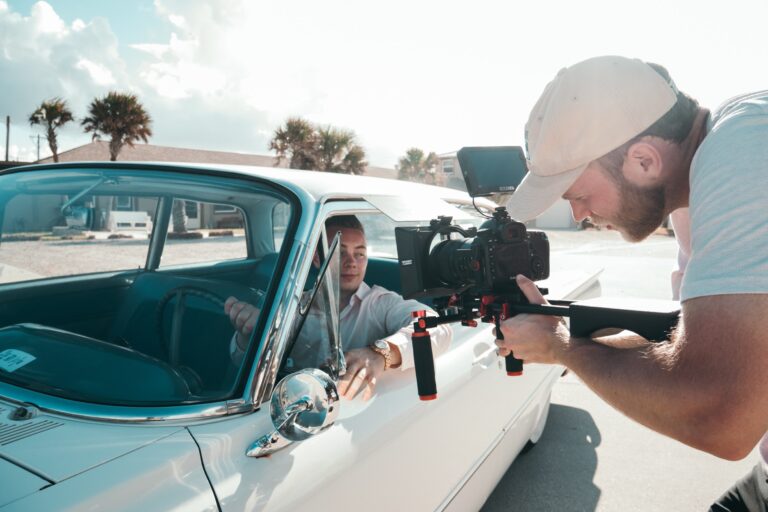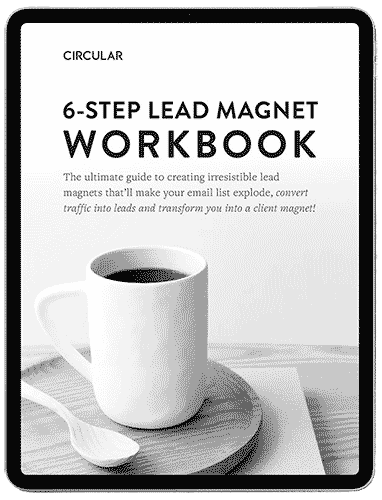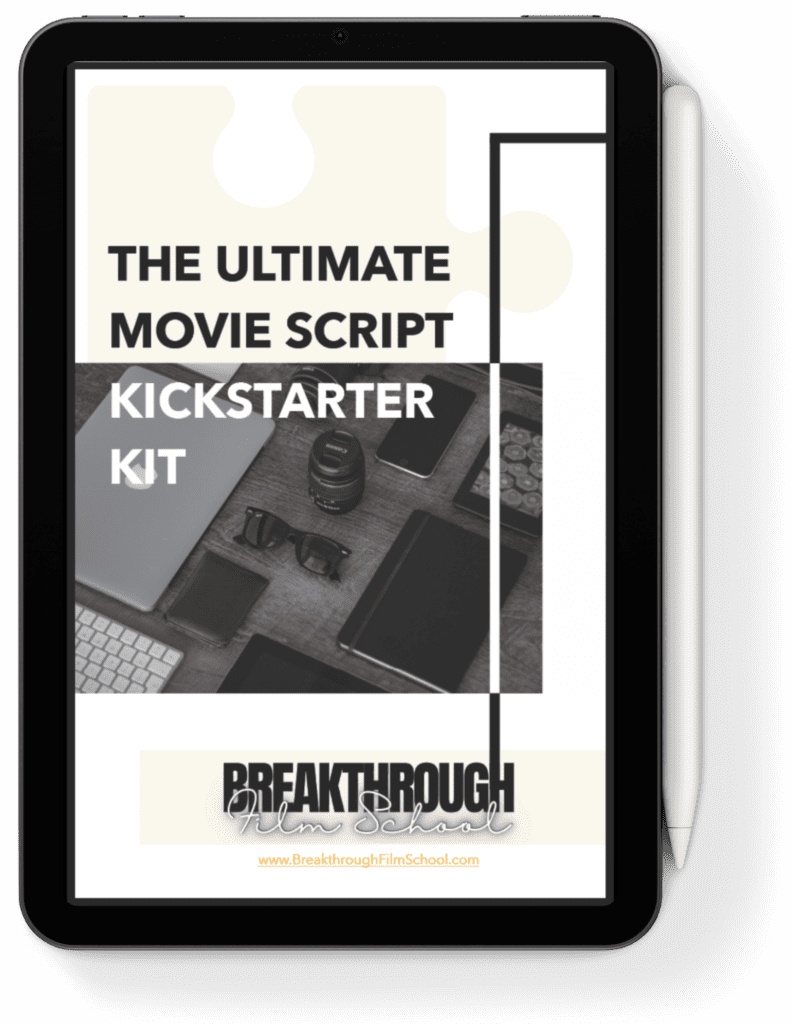7 Ways To Make A Movie That Kills It At Film Festivals
Great filmmaking, film directing and film production lead to winning at film festivals. If you are going to make a movie and win awards, this is the way to do it. It’s time to make your mark as a filmmaker.

Do you want to make a movie that wins at film festivals?
Of course, you do! Doing so may give you massive amounts of prestige as a filmmaker and it could earn you the credibility to move on to bigger projects. Let’s get your film not only into the festivals, but give it a fighting chance at being recognized in a big way.
First off, your film has to be quality, that should go without question. This does not mean it has to be the best looking, have the most special effects or the biggest name actors, but it does mean that you need to do the basics well.
The good news is that is pretty easy if you know what to be mindful of. You are going to need quality sound, editing, acting and, most of all, a great story.
You want to make sure you are covering the basics. If you feel like you have a handle on those things then this advice can make a seemingly average film into something that turns heads.
When you begin to understand what film festivals are looking for, so many things are going to begin to make sense to you.
This is a list of “film festival hacks” that get films and filmmakers noticed in a big way. The thing to understand about film festivals is that they have an agenda and when you understand what they are going for, it becomes a lot easier to deliver.
So, if you don’t want to leave it all up to chance and just hope for the best. See what you can do to apply these hacks to your next film.
Keep in mind, that every film festival is a little different, so don’t treat them all the same. Some want things that others don’t. Some want things more or less than others.
Before you make a plan on who to submit your film to, try to learn about each festival the best you can so you know your target audience. The less you leave to chance, the better, so do your homework.
These festival hacks should give you an advantage across the board with almost all festivals, but don’t try to please them all. Pick the ones that matter to you, that you want, that help you best achieve your goals.
There will likely be several that are alike, so your goal is to go at those as hard as you can. Don’t be general in your creativity; be specific about it.

Film Festival Hack #1:
Have a Profoundly Deep Theme
There are many demands made of a filmmaker or screenwriter. For one, they need to make a coherent story that not only makes sense and fits together nicely, but they must also bring the audience along for the ride, willingly.
That means their film must be either emotionally moving, entertaining or both. The character must be relatable enough to follow and their struggle must feel worthwhile.
If you have those things covered, then you are ready to bring a deeper theme to life and make a movie that exists in a new stratosphere.
All films technically have a theme, but they are not all created equal, nor do they all make the same impact. If the story aligns with deeper ideas consistently throughout the movie, then the theme will likely make more of an impact at the end, when it becomes more evident to the viewer.
Many filmmakers and screenwriters struggle with having a theme that makes an impact. It comes down to a few common errors.
Where a filmmaker goes wrong with theme:
1.) They do not stay consistent with their message throughout the story and so the theme becomes diluted. They wrote or edited the script without a theme in mind, most likely, but worse, they didn’t even identify the theme for themselves when they finished writing it. They didn’t consider their work to figure out what it was ultimately saying.
2.) They used a theme that was overdone, common, usual, safe and something that has nothing new about it. By keeping the theme too general or using something that has been done a thousand times before, the audience is not going to be blown away by it. There will be nothing interesting to walk away with.
3.) They overthink the theme and, instead of keeping it simple, they make the theme too complex to grasp. It is important to not overthink it when it comes to delivering a theme in a story, but you also want to have a definitive and unique point of view about things as well. When you figure out your theme, make sure the film delivers on it.
Coming up with a profoundly deep theme begins by thinking about something common and usual, then, taking it further. Make it more specific than just a common thing we all know.
For example, if your story has a comment on love, that, alone, is too general, but if it is about love – in broken friendships, then it begins to tread into more interesting territory.
The theme says a lot about how you, as a person, see the world. It is not about imposing your beliefs as correct, but about presenting them as a possibility.
The screenwriter is usually the one most responsible for presenting the theme, but it’s the filmmaker that brings it to life with their vision. Ultimately, each plays a part in it when you make a movie.
Film festivals and mature audiences love a deep, profound theme. It leaves them with something new to consider in their lives about how they see the world and themselves in it.
Since most film festivals attract more mature audiences, basic common themes rarely appeal to them. If you can knock their socks off with a deeper message, though, you may create their favourite film.

Film Festival Hack #2:
Hit on a Current Political or Social Issue
True story… When I was in film school, this kid made the worst, lowest quality film of our entire class, but it ended up getting into all the festivals, while most of ours just got rejection letters.
Why? Because this film hit on a current political issue and the film festivals saw it as a very relevant piece of content. This kid failed upward really well and taught me something.
“It is not always the quality of the film that makes it noteworthy for film festivals, sometimes it just that it hits on the right thing at the right time.”
Film festivals are notorious for choosing films that are current and relevant because their audiences are into it for more than just pure entertainment value. Their audiences want depth and connection.
If you want pure entertainment, don’t go to a film festival; go to a commercial theatre that promotes blockbuster studio productions. Those types of movies may have more to them now and then but, for the most part, they attract audiences with spectacle, big budgets, big names and flashy sequences.
Lower-budget indie films have a difficult time competing with that, so they deliver something else instead.
Film festivals usually don’t aim for flashy films. If the movie is all surface and has no substance the audience generally won’t receive it well.
The big-budget films may attract their attention initially, but most film festival goers are looking for something a little less common.
Aside from niche film festivals like horror or sci-fi-focused ones, most film festivals are looking to give the audience a unique experience. They want films that impact emotionally and provoke thought, instead of just aiming to entertain.
If you want an easy way to make your film relevant to film festivals, consider the current events in the world and have your movie indirectly (sometimes directly) say something about them.
Just don’t be preachy about it. It’s not your opinion that counts in this case. Instead, it’s more about your story exposing something that not everyone sees and letting the audience decide how they feel about it.
You are still going to need to wrap your story around it and not be on the nose about your agenda, but this can give you a huge advantage if you do it right.
Just make sure you have something to offer the whole audience. Avoid pandering to the people who agree with you and therefore excluding those who don’t.
Talented filmmakers find a way to interweave a great story with a strong point of view about a current situation in society. They make a name for themselves as having something more to offer with their work.
The festivals love it when they have relevant films. Your film may even become a historical monument that is praised beyond the awards it wins.
A couple of filmmakers who are excellent examples of this are Oliver Stone and Stanley Kubrick. They both made Vietnam war films that surprised their audiences with the hidden realities of military combat.
Their films, “Platoon” and “Full Metal Jacket”, were great cinematic masterpieces, but they were more than just war films. These movies were both about the humanity in war, rather than just flashy action sequences of battle scenes, gunfire and explosions.
In a time when war was politically glorified, the Vietnam war began to expose a hidden perspective. Soldiers were disillusioned by what they saw overseas, realizing that they were not there for the reasons they had signed up. The war was about a political agenda and oil; not necessarily about good versus evil. These filmmakers tackled this.
Your film can hit on the world’s current political/social climate and immediately become relatable if you can tie a story into what is currently going on in the world.
It requires being in touch with what people are thinking and talking about, but that is not hard to do today, with so much social media as easily accessible as it is. Just pay attention.

Film Festival Hack #3:
Make an Allegory / Metaphor Film
Not every film is going to be able to use this strategy, but it can be a very powerful one when applied well.
What is an allegory? It is a story, poem, or moving picture that can be interpreted to reveal a hidden meaning; typically a moral or political one. It’s a metaphor, a parable, an analogy or a symbol. It is the story that is going on beneath the surface of what is presented.
Making an allegory film takes intelligence and an artistic mind because you need to be able to relate things that may seem otherwise unrelated.
The reward for making a film like this, though, is incredible, because it adds a level of depth to your creation that is often unparalleled by anything else.
The downside is that it also takes an intelligent audience to recognize it. Sometimes people miss the point so the story doesn’t land with them.
The good news is top-tier film festivals attract audiences that are there for more than just popcorn entertainment. Many festival audience members want to be challenged; they want to think and they want to see high-art in the medium of filmmaking.
The curators of film festivals who choose the films are also sensitive to this, so they are often looking for films that will deliver what their audience wants.
The way an allegory or metaphor film is done is by having your story concept parallel with something that does not seem related.
This can be achieved by taking a historical event and playing it out with characters in the modern day. Essentially, what you do is have the characters resemble people of the past, but show them in the modern day or in an entirely different situation altogether.
For example, consider “Lord of the Flies“. What happens is a bunch of adolescent children are stranded after a plane crash and must survive together. Initially, without adults, they resort to tribalism and “might is right” for their social order. As things play out it comments on the social and cultural evolution of humanity as a whole.
It is up to you how creative you want to be with your allegory idea, but very interesting things can come of them. These types of stories can have very deep messages in them that are made relatable to an unlikely audience. Film festivals love this because it brings up their prestige. It may be worth creating one if you can manage to pull it off.
A few allegory films to look at for further inspiration may be “Mother” directed by Darren Aronofsky, “A Clockwork Orange” directed by Stanley Kubrick, or “Fight Club” directed by David Fincher.
The films may feel uncomfortable and a bit confusing at first, but that is because there is more that is going on than there appears to be on the surface. You’ll have to look deeper into them if you are going to truly understand what they are doing.
Allow yourself to be creative beyond the obvious. You may be able to take two unrelated things and find a way to make them into one very meaningful new piece of cinema.
At the very least, it will push you to be more artistic and creative as a storyteller. You may even get some real attention from major film festivals and stand out from the crowds for your ability to go beyond the obvious.
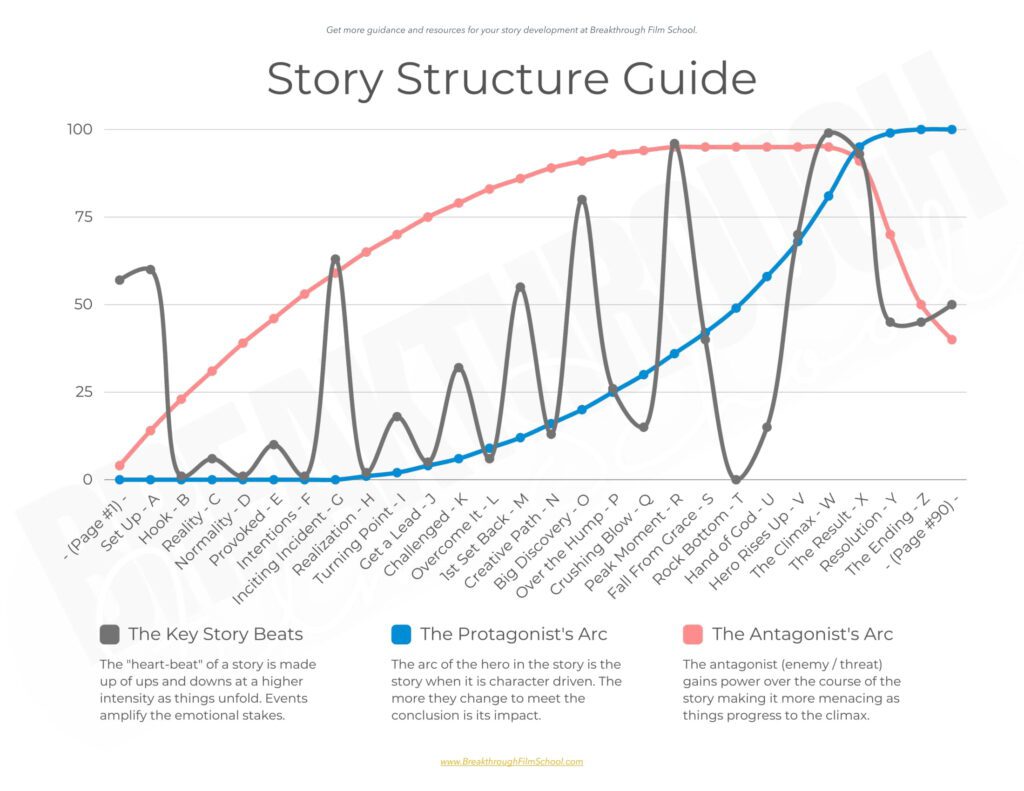
Film Festival Hack #4:
Deliver Visceral Emotional Impact
This is your primary job as a filmmaker and storyteller, to make a movie that provokes emotions. Audiences may not realize it, but they want to be emotionally impacted by what they experience cinematically.
Keep in mind, that not everyone is looking for the same kinds of emotional intensity with each film experience though.
Some audiences only want to feel good with the films they watch, with sprinkles of discomfort. Others want a cold, hard, visceral gut punch from what they see.
Generally, audiences who see studio blockbuster films tend to want the kind of content they can take a date to and walk away feeling good. They don’t want to think or feel too much. They just want to have a good time.
There are always exceptions to this but, being aware of what people want helps you to find your audience. As a filmmaker or screenwriter, you are providing a service, a product, and those that buy it expect to get what want when they do.
If you are determined to be a film festival wizard, you may have to push your content beyond the standards of mainstream Hollywood popcorn entertainment. Not that there is anything wrong with those kinds of films, but they don’t tend to do that well at most film festivals.
Know your audience; the film festival goers want to think and they want to feel. If you want them to applaud your film deliver that.
Film festivals are a different beast than mainstream media because they are more like art museums that have curated content. They pick a line-up of movies for a certain type of film appreciation. They tend to focus more on the humanity and personal struggles of the characters as opposed to the spectacle of events they go through.
The film festival audiences appreciate creative filmmaking and they are willing to open their minds to do so. They are not necessarily at the theatre, on a date; they are more likely there for a personal experience.
To a film festival attendee, their date is the movie and they are looking to connect with it directly by giving it their undivided attention. The benefit of this is, that they tend to be more open to going to new places with a story. Places a new filmmaker might take them.
The film festival attendee and curators see many films all in a very short amount of time. What makes this enjoyable, sometimes only bearable, is that, ideally, none are exactly alike.
They often do not know the people who made the film, because the creators are unknown, so they are taking a risk on what they are going out to see. They are choosing your film because something about it appeals to them beyond the budget.
Some of the more posh film festivals like Cannes may be the exception for a lot of these points. With a festival of that stature, if you are a relatively unknown filmmaker, they may not consider your submission.
In some cases, if your film has no movie stars attached to it, you’ll have an uphill climb in standing out for them. So pick your battles. Not every film festival looks for the same things.
The bottom line is, to make a film that has emotional depth in it. There is a saying to always remember…
“They will never remember what you said or what you did, but they will always remember how you made them feel.”
If you want to make a lasting impact take this to heart. The degree to that you push the line on emotional impact is up to you, but make sure you push it. How much is hard to say, but emotion is one of the best assets you have at your disposal as a filmmaker or screenwriter.

Film Festival Hack #5:
Have a Message that Hits Home
This is similar to having a profoundly deep theme, but it is different in that it is more focused on the micro elements of the film as opposed to the entire film as a whole.
Themes usually do not reveal themselves until the entire movie is said and done, but the messages of it present themselves in the process of the story. The characters’ decisions and actions are often how audiences determine what the message of the film is.
If you want to have messages in your film that hit home, find ways for your characters to make decisions and take actions that suggest something a little less predictable. Try going against the grain.
Getting characters to respond in a different way than the audience would expect may present a message that stands out in the story.
For example, if your character is cheated on by their spouse, the obvious response is for them to be angry or hurt. An uncommon response may be for them to be happy for their partner because they also wanted to be with someone else as well.
This kind of outcome may connect the characters instead of driving them further apart. That might impact the audience in a way that they never even considered. It may even hit home as a possibility in their own lives.
You, as a filmmaker or screenwriter, have all sorts of options in your arsenal. The direction of the actors and how the story unfolds can send things to places that nobody ever expected.
You do not have to be bound by predictable decisions, actions or outcomes. In fact, by throwing in a curve ball, you can take your story to undiscovered territory and when you find yourself there, the audience will praise you for it.
Film festivals love stories that go into the unknown and take us on an adventure into a world we have never seen before. It all begins by digging beneath the surface of what is happening.
Aim to unlock the secrets of the characters that shift your story world in new ways. The best part is, by finding a different message in the narrative, you may open it up to something new that has never been seen before.
If you truly want messages in your film that hit home, you need to look at the secret lives people live. You need to see that there is what people present to the world, but there is also what they hide from the world.
If you can tap into the secret lives of the characters and let that inform their actions it will create a wonderful complexity in your stories. When you peel back and expose a hidden truth, people tune in, likely because it is interesting, or because they carry it with themselves.
A great story hits home. You make the audience see themselves in the story and the characters. Now they are inextricably bonded with your narrative and they will go wherever you want to take them.
If there is one thing people like, it’s seeing that they are not alone in this world and that somebody out there truly gets them. That could be you. You could be that artist who has a message to share. Something that others think and feel, but have never had a forum to explore it. Until now.
So, if you want to slay the film festivals, expose secrets in the lives of your audiences, by exposing the secret lives of your characters. Have messages that speak to the part of people that they don’t show the the world.
Instead of having messages that only hit on who they “pretend to be” for the public eye, dig deeper and hit them where nobody looks, but them.

Film Festival Hack #6:
Be Entertaining in a Smart Way
Why do we watch films? Well, that may be up for debate, but, consistently, people want to be entertained. The film industry, after all, is synonymous with: the entertainment industry.
People appreciate a great film that is artistic, creative and moving, but they enjoy the spectacle of it all as well. In film festivals, not all audience members want film art, not entirely, some are there for the pure joy of fun and playful storytelling.
Some attendees are hoping for the film to be entertaining more than artistic and that means striking a balance between the two, depending on the kind of film you are making of course.
If you are making a film in a different genre than pure drama, the demand for an entertaining, visual spectacle on an experience may be higher than ever.
As an example, people want to laugh at a comedy and they need comedic relief in the horror genre. This is not about deep messaging, profound themes or hitting on current issues. This is about having a little fun with things and making moments of your film joyful, playful or just plain silly.
Films that lack this kind of range can be overlooked at film festivals. The films that are so dark, dreary and depressing that they lack any joy can be very hard to watch or sit through after a while.
Your content may be about the issues, but that does not mean that it needs to be exempt from lighter, more entertaining moments. The light moments are what will enhance the impact of the darker ones.
Entertainment, in cinema, is really about finding the emotional range. It is about having a good balance of highs and lows for the audience, which is what gives them a roller-coaster ride experience.
If you keep things too light all the way through, the entire film may end up becoming a fluff piece with no depth. If you make things too dark all the time, then it can become a depressing tale that lacks hope and the audience will just detach from it all.
Your task as the filmmaker and screenwriter is to strike a balance between both of these things effectively. No matter what kind of film you are making, ask yourself…
“What about this is entertaining?”
Be honest about it and try to consider how your audience is going to experience what you are creating. Pinpoint the dark and the light in the story. The emotional highs, and the emotional lows. If you are lacking in either, find ways to enhance them, so that you can create more range.
The entertainment in a movie is generally about the lightness of the content. It is about the feel-good parts that make you laugh and smile. The things that “wow” you and amaze you.
Sometimes well-placed humour can go a long way in creating a sense of relief for the audience in a dark film. The same goes for adding some emotional depth into an otherwise light and playful movie. Pick your battles for each and stay away from having your story all be one note.
Festival curators and audiences may want films that have elements of artistry, but that does not mean they are only into being serious all the time. Everyone can appreciate a little humour now and then, or having a heavy situation lightened with humour.
People can use a little joy in the stories as well, after all, “joy” is in the word “enjoyment.”
Try to see how you can entertain your audience in a way that stays true to your story and honours the vision you are creating. Most of all make sure you don’t take yourself too seriously. You may find it is as simple as allowing yourself to play a little.
If you can make your film both emotionally moving and joyfully entertaining, there is a good chance it opens the door for distribution to larger audiences as well.
Part of the goal of going to major film festivals is not just about winning awards; it’s also about getting the film out to the world and making money. Entertainment is usually the ticket for movies to go mainstream.
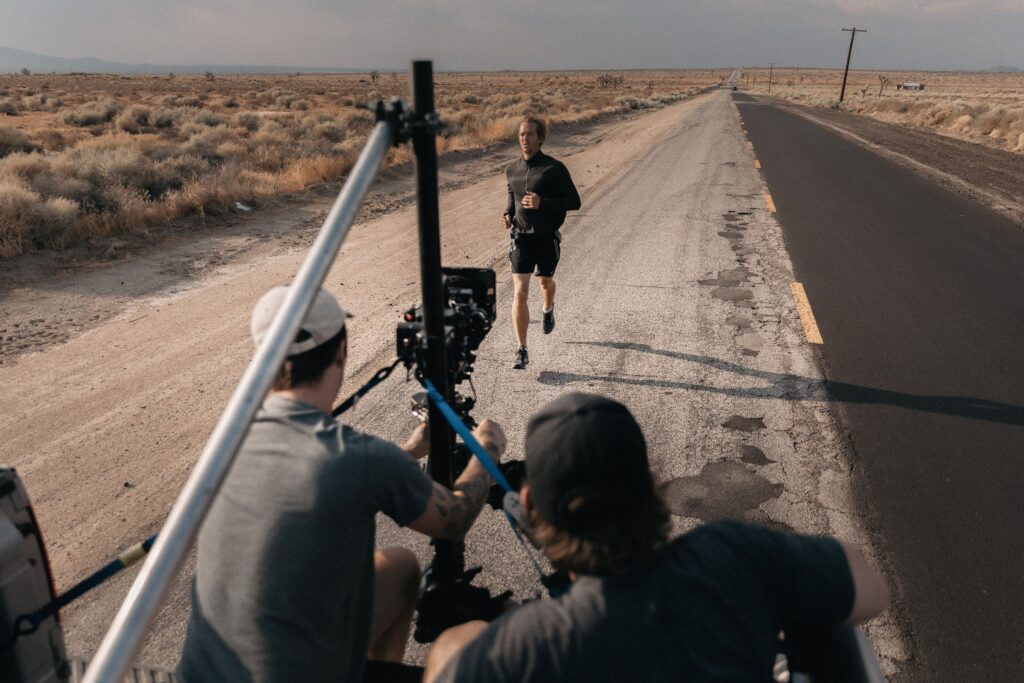
Film Festival Hack #7:
Create an Original Concept Film
The last thing you want to do when you make a film is do something everyone else has already done. Yet this happens over and over again, time after time by filmmakers and screenwriters.
Why? Likely because these filmmakers watch films and end up getting their inspirations and ideas from what has already been done. It is the worst place to go to get inspired for developing new concept ideas.
Inspiration needs to come from another source than what is already out there. The real value in watching other films is not to figure out what to do, but rather what not to do.
Original concepts come, usually, from figuring out how to take something seemingly common, but do it differently in some way that makes it new and unique. It can also be about connecting completely unrelated things.
If you want to kill it on the festival circuit, come up with something that is a new experience for people to have. That will be worth a lot.
It is not necessarily an easy thing to do but start by keeping it simple and building on something small that works. Remember: most of the time it isn’t even about inventing something entirely new, it’s about making a fresh story idea out of what already exists.
Think about the saying…
“Don’t try to reinvent the wheel.”
Instead, make the wheel do something different; something it has never done before. Use it in a way that nobody thought to use it. Make it better or, if you are not able to make it better, make it do something new.
In the pursuit of trying to create a new and original concept, a filmmaker or screenwriter can lose their way. They can get far too complicated about it all. They can abandon the fundamentals that make a story work in the first place.
No matter what you do, don’t forget that the story and characters are what drive all-new story ideas to matter. A good idea only becomes great if the characters in it can take it somewhere that people will care about.
The characters and story must be primary for a film to work. To create an original concept, you may simply take a common character and fit it with an uncommon situation… or vice versa.
There are many ways to come up with new ideas and it is worthwhile to learn how, because doing so really pays off even beyond just getting film festival recognition.
To get started on this strategy, get a notebook where you can jot down ideas throughout the day. You need to be ready for when inspiration hits and you need a place to collect all of these inspirations.
One inspired moment may not be enough to give you that winning story concept, but a couple of them combined may light the way. Remain open and ready for when they hit.
If you are committed to creating original content and standing out as a filmmaker, look to your own life. The story that can tip things over the edge is everywhere around you. Often it’s in the people, the events and the situations that few are paying attention to.
Use your creativity to find new combinations for putting things together. Every person you meet is an inspiration for a new character. Every situation you encounter is a new territory to explore. Often all they need is your attention and imagination to become something special.

It's no guarantee, but it's an advantage...
There is no such thing as a sure thing when it comes to artistic mediums. Even the studios get surprised by how movies do at the box office, and they have hordes of teams working to assure their success.
Sometimes, a surefire hit bombs at the box office. Your film may not get received by the festivals well, even when everything says it should.
Don’t let this deter you from using these film festival hacks, though, because they do work and, at the very least, they will give you and your film an advantage.
Sometimes, it is not the hacks that let you down, but something else entirely. It could be that you applied them correctly, but your film had weak acting, terrible sound or the story just doesn’t work.
This is why you’ve got to be really, brutally honest with yourself when you make a film; especially if you are spending a lot of money on making it.
There are usually warning signs that your film is not going to work before you ever make it. If you don’t catch those and instead go out and make the film anyway, then what you are going to get are some hard-learned lessons for the next one.
The bottom line is that a lot of people want to make movies and be the next big thing, so the competition is fierce. Rising above the droves of wannabes and becoming a serious player requires being diligent about what you choose to make and how you choose to make it.
The best thing you can do is start small and keep things simple in the beginning until you get a hang of it. Make a short film, or make a few short films, just to learn.
Once you have some work under your belt, a bit of real world, onset experience, then consider going bigger and taking on the larger risks with your time, energy and money… or other people’s money.
If you feel like you’ve got your feet wet and are ready to dive into bigger things, then this is when you can begin to see the benefits of these film festival hacks. Apply them now, anyway, but keep in mind that a good story, characters and concept matter above all else.
You can have an advantage over other filmmakers by applying this, but always remember that this is in addition to good storytelling and well-developed characters.
One final thought. Filmmaking isn’t about being better when you are at the top levels, contrary to common belief. The films and filmmakers that get noticed are the ones that make an impact on the audience.
On top of their great filmmaking abilities, they communicate a truth that resonates with people. They tap into an inward significance that goes beyond the outward appearance of what movies they make.

